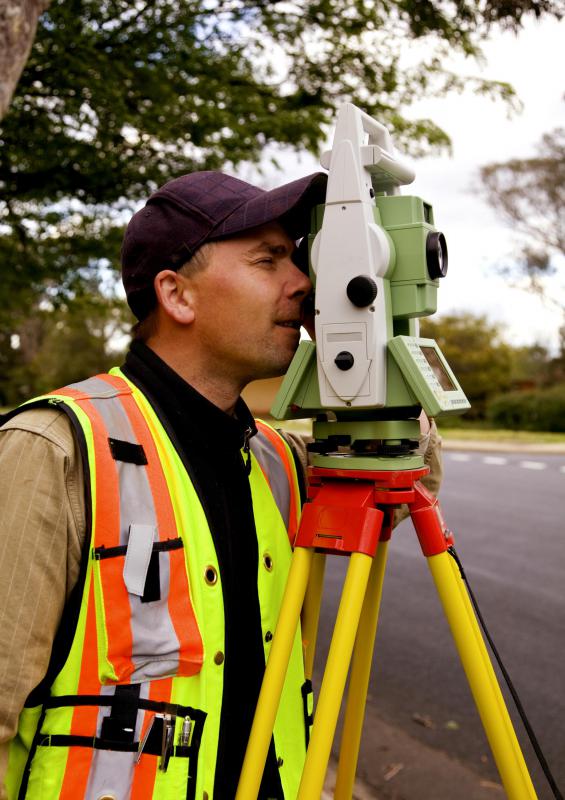At MyLawQuestions, we're committed to delivering accurate, trustworthy information. Our expert-authored content is rigorously fact-checked and sourced from credible authorities. Discover how we uphold the highest standards in providing you with reliable knowledge.
What is a Land Dispute?
A land dispute occurs when two separate entities feel like they both have a legal claim to a piece of property. This may be a disagreement about property lines, a bank foreclosure, or even a clerical error that created two rightful owners. If the matter can not be settled civilly, then the matter is brought before a judge for a final determination. Both sides will then plead their case regarding the land dispute and eventually a verdict will be given. If neither party can prove beyond a reasonable doubt that he is the sole owner of the property, then is it possible that the land could be seized by the government.
There are land disputes that happen almost every day, and in many cases there is no clear winner or loser once all is said and done. For example, it is common in business leases for a business owner to have a buyout clause after a certain number of years of operation. While he does not own any stake within the building, the law would state that this person would have to waive his future rights for purchase before the property owner could sell it. This rarely happens the way it should under regional laws, however, and when the land owner needs money he often doesn't think twice about selling.

In such a case, the banker and the title company often have no idea about the lease agreement that offers a purchase guarantee, so the sale goes through. The business owner may have no idea that the transaction was taking place, so he never speaks up during the process. This type of three-way dispute often ultimately ends up in court, and the judge has to make a ruling even though each side did exactly what the law stipulated. In this type of case, it is usually the title company that walks away the big loser because they have to refund the buyer's money while giving the property back to the original seller. On top of that, all three parties would likely spend a large sum of money on legal representation and none of them truly received what they were hoping for.

Other types of land disputes are much harder to decipher. For example, when a homeowner dies without leaving a will, there may be many individual claims from family members during the land dispute. In other cases, both parties may have ample documentation to show that they own the property in question. Clerical errors happen all of the time, and it is very easy for a title company to overlook an old lien or an unsettled debt that has to do with the property.

No matter the causes, the procedures in a land dispute are usually nearly identical. Both parties have to go to their local courthouse to obtain the deed that showed the original sale or transfer. From there, each lending institution involved with the sale has to be contacted and a search take place looking for any outstanding debt. If a clear owner is not identified at this point, one or both of the claimants can file a civil suit. Arbitration would normally be offered and an independent entity would study all of the records involved, and if a settlement was not possible, then it would be scheduled for court.

Once a judge sits through the trial and reviews the evidence, a verdict would be given based on who has the most proof of ownership. This can be a tricky subject in some cases, but a number of factors are taken into consideration before a verdict is delivered. For example, if one claimant had been living on the property for an extended period, the court may question why the dispute was not argued sooner.

If there is no clear owner after the land dispute case has been heard, it is entirely possible for the government to deny all claims and seize the property. When this type of scenario occurs, the claimants have to start the legal process all over again after they found sufficient proof to present to the courthouse. The government would then hold the property for a certain length of time, depending on the region, and if new evidence did not arise the land could be sold at auction.
AS FEATURED ON:
AS FEATURED ON:















Discussion Comments
Property law is confusing, but aren't a lot of areas of law confusing? If we could just type a fact pattern into a computer and have a definitive answer as to who is right and who is wrong, there would be no need for attorneys, would there?
Throw in the always murky theory of adverse possession and one thing becomes clear -- property law is confusing. Adverse possession simply means that someone can take ownership if land that is not their own if they use it for a certain amount of time (that time frame differs by jurisdiction, but seven years of continuous, open use is a fairly common standard).
What constitutes adverse possession differs from state to state. For example, if Fred builds a tool shed on a piece of land belonging to his next door neighbor, who owns the land on which the tool shed sits after seven years? That's not an easy question to answer as the guidelines are different in each state. One state may say the land is Fred's because he used his neighbor's land openly for 10 years while other states may have additional requirements.
Post your comments